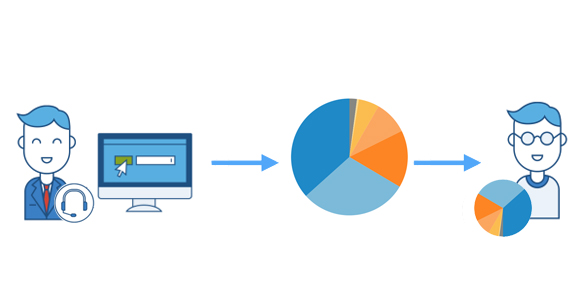Best Practices for CRM Software

Best Practices for CRM Software
4/13/2022 4:00PM
Top companies have some practices in common when implementing CRM software. These best practices can help companies grow their business, improve their operations and their customer relations. When implementing CRM software, you should consider the following,
1. Customize the CRM software to fit your own business processes
Not every business is the same. Similarly, the CRM software you implement should be fully customizable to fit your business. Some CRM software is available in modules while other software is fully customizable. With modular software you can use the parts that best fit your needs. Customizable software is often a better solution because then you can address your business’s specific needs. Quality CRM software can increase your productivity, gather the data you want to analyze, and create reports specific to what you want to assess.
Your CRM software should fully integrate data from or into spreadsheets, scheduling, and tracking systems. It should be able to transfer data from transactional systems into your reports or spreadsheets. Not only will this allow you better use of your data throughout the company, but it helps you to interact better with your customers in real-time.
2. Maximize the benefits to gain the most from your investment
Many companies decide on CRM software based on the cost and superficial features rather than the actual functionality. When you focus on cost you may sacrifice features and options your company really needs. Businesses need software that enables processes, facilitates growth, and encourages positive customer relations.
Automating operational data collecting and analysis allows companies to focus on getting work done. The software provides you with a more streamlined way to find out about your customers and build customer loyalty. You can focus on improving company performance and efficiency as you discover new and better ways to grow your customer base.
3. Automate repeat processes
Software offers a way to take care of processes your company does repeatedly. This saves time, effort and really reduces mistakes. CRM software can automate lead generation as well as scheduling and distribution of sales people. The result is you can gain new customers more quickly, increase sales and marketing effectiveness, and build stronger relationships with customers.
Some elements that are easy to automate are managing e-mails, alerts, and schedules, tracking sales and performance measures, and creating reports and spreadsheets.
4. Integrate CRM software with your other business software
Having your CRM software integrate with the rest of your business software is more than just a nice convenience. It is essential to streamline your business functions. Every member of your team shares company and customer information. You can spot trends and developments to implement needed responses.
Integration of CRM software creates a customer-focused company. It helps customers feel that you understand their needs, interests and purchase history and therefore, want to continue to provide the best customer service. Mobility and remote access features make your CRM information available almost anywhere and anytime. With web based CRM software, your information is available whenever you need it.
A good metrics application will give management the detailed content they need to make accurate, intelligent decisions. The reports should be easily customizable and shareable.
If you want your company to be responsive and flexible then your CRM software needs to be easy to customize, give maximum benefit, automate some business processes, and integrate seamlessly with other business software. These attributes make your CRM software a wise investment.
Recent Posts
Socials





